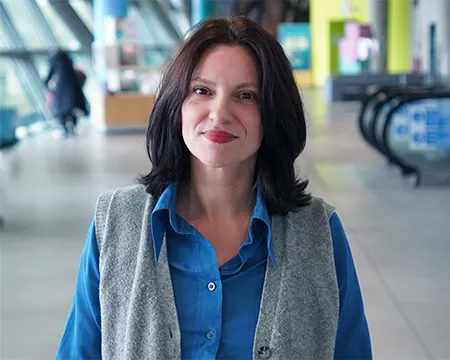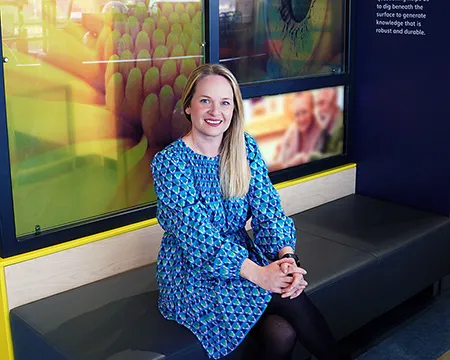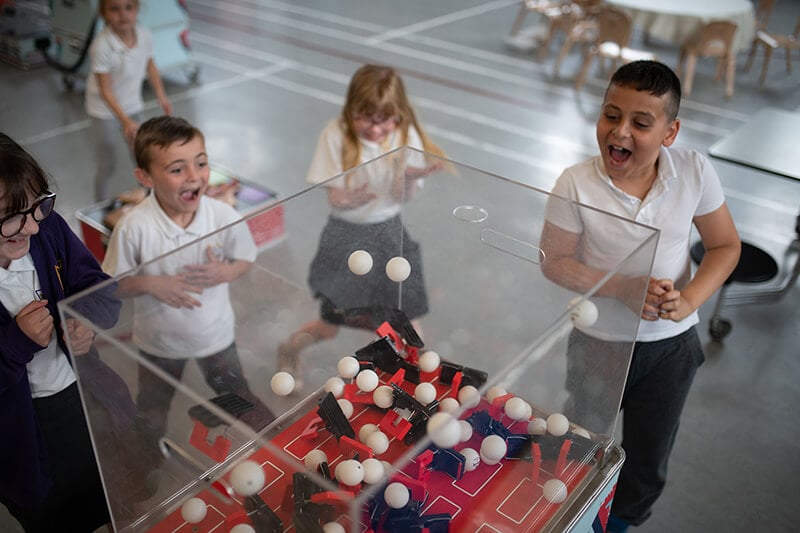Making memories

How good is your ability to remember things? Or to forget the non-important? In this blog post, we explore making memories with Glasgow Science Centre's Shaun Edmond.
Goodbye summer, hello again to school. At this time of year, the atmosphere is made of memories. The first day back was marked with all the “what-did-you-get-up-to”s, in the playground and in the classroom, while parents had their annual “they grow so fast” moment as they waved goodbye at the gates. And once the books are opened, memories of a different type are being formed, from how to answer questions in the end-of-year exam to the lines for this year’s school show.
Your memories are unique
Working or playing, our brains are forming memories and helping us learn about the world around us. Without being able to form memories, we would not know the biographical details of our life or learn how to ride a bike or play the piano, and we’d struggle to recall facts about historical events or remember that six times eight is 48. Memories, both pleasant and otherwise, are how we learn, love, laugh and live. They are unique to each of us, and they also bring us together.
While you may hear people say “memories maketh mankind”, humans are not the only species capable of remembering and forgetting. Birds and mammals, as they transition from chicks and cubs into juveniles, steadily master the bare necessities of survival, learning from their memories of past mistakes and successes.
Some animals have memories that go beyond this: an experiment conducted on pigeons found that they can remember human faces. Two Paris-based scientists took opposing roles with a group of city centre pigeons - one allowed them to feed, while the other scared them away. When the researchers swapped outfits, the pigeons were still able to tell the individuals apart and continued to avoid the one who had chased them away.
How are memories formed?
Memories are formed when groups of nerve cells, or neurons, in the brain are activated and subsequently encode the sensory information we are receiving. From here, the lifespan of a memory can be of two types: short-term or long-term. Our short-term memory allows us to hold a limited amount of information which will be forgotten about quite quickly, after about 15 - 30 seconds. This is why some of us have moments where we think “did I remember to turn the oven off?”. For my part, I once videoed myself locking up my workplace’s office so that my brain would not have such a moment over the weekend.
When information is repeated or provokes a strong emotional reaction it will be sent to long-term storage and can be recollected later. If all this sounds a bit like the Pixar film Inside Out, that would be because the film’s writers extensively consulted with neuroscientists to accurately portray the link between memory formation and emotions. The film received significant praise from the scientific community as a result.
Remember to forget
Not every fine detail of our experiences are stored; our memories include only the important or emotion-provoking details. In one of the Sherlock Holmes books, the title character is informed by Watson that the earth travels around the sun. Holmes’ immediate reaction was to assert that now he knew the fact, he would try to immediately forget it. Holmes, likening the brain to an attic, theorised that we should be very selective with what we choose to store, so that the brain does not become cluttered with useless information.
There is some scientific accuracy to this story: researchers have found that the brain actively works to eliminate the minutiae of an experience so that the key points of the memory can be reapplied to future life scenarios.
Ironically, it has been found that more forgetful individuals tend to do well in jobs that require abstract thinking since they’re able to apply past learning more easily to new situations.
How much can you remember?
On the other side of the spectrum is a condition called Highly Superior Autobiographical Memory (HSAM). It’s estimated that fewer than 100 people have this ability to remember every day of their life in crystal-clear, minute detail. Despite having a superior biographical memory, people with HSAM are no better than average at remembering random facts or shopping lists.
Understanding how much someone can remember and how those memories are formed is key to many things - including ensuring every child who’s made their return to the classroom succeeds.
If you want to test your memory, next time you’re at the Glasgow Science Centre keep your eyes out for our memory game on the third floor in the BodyWorks exhibition gallery, where you’ll put your ability to recall patterns and numbers to the test.
Further information
This blog post, written by Shaun Edmond from Glasgow Science Centre, is adapted from an article that first appeared in Glasgow Times in September 2022.





